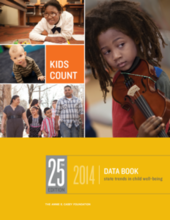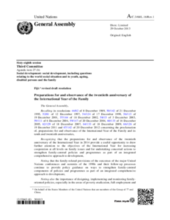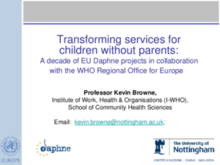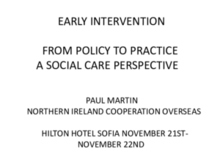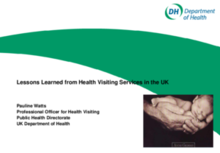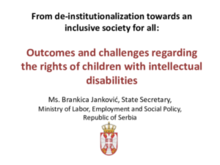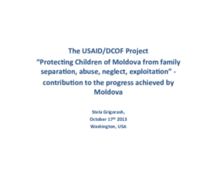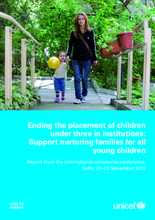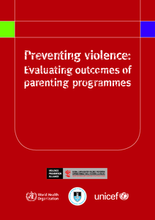Displaying 241 - 250 of 350
The KidsCount Data Book for 2014 is produced by the Annie E. Casey Foundation. It is the 25th edition of this data book, which measures state trends and demographics in child wellbeing in the United States.
The United Nations General Assembly adopted on the 18th December 2013 a resolution on Preparations for and observance of the twentieth anniversary of the International Year of the Family.
This presentation to the 2012 Sofia Conference by Kevin Browne, Institute of Work, Health, and Organizations (I-WHO), School of Community Health Services at the University of Nottingham, introduces the collective findings of his research studies on the harmful effects of institutionalization of young children and major causes of child abandonment in Europe and prevention methods.
This presentation to the 2012 Sofia Conference by Paul Martin introduces family support mechanisms and services to better equip parents to care for their children.
This presentation to the 2012 Sofia Conference by Pauline Watts, Professional Officer for Health Visiting, Public Health Directorate, United Kingdom Department of Health, introduces key lessons learned in regards to preventing child abandonment by looking into intervention and support services available to children and families in the United Kingdom.
This presentation to the 2012 Sofia Conference by Brankica Janković, State Secretary, Ministry of Labor, Employment, and Social Policy, introduces the achievements and challenges faced in altering the attitude of professionals working with children with disabilities from preferring institutions to family-based care systems.
The second of two important presentations by Dr. Stela Grigorash, the Director of Partnerships for EveryChild Moldova, on the important work and lessons learnt in reforming the care system in that country.
This Report from the international ministerial conference, held in Sofia, 21–22 November 2012, entitled 'Ending the placement of children under three in institutions: support nurturing families for all young children', brings together the presentations, political commitments and priority actions identified by the participants, including 20 governments from Eastern Europe and Central Asia.
Responsibletravel.com, a travel company operating from the UK since 2001 has issued Guidelines for partner operators for volunteering directly with vulnerable children, including in the context of orphanage volunteering.
This report seeks to increase understanding of the need for, and the process of, conducting outcome evaluations of parenting programmes in low- and middle-income countries. The guidance is aimed at policy-makers; programme planners and developers; high-level practitioners in government ministries; representatives of nongovernmental and community-based organizations; and donors working in the area of violence prevention.

